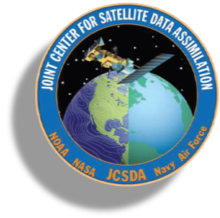2023 was a great year for JCSDA, with three Skylab releases, 8 spack-stack releases, and big steps towards operations. Our biggest highlights:
JEDI-Skylab versions 4, 5, and 6 were released
CRTM 3.0 was released and added features including full polarization solver capability and multiple aerosol species. The CRTM team published a paper in BAMS.
Spack-stack 1.5.1 was released at the end of September and is the first spack-stack release to be officially used by UFS
Several new features were added to JEDI Unified Forward Operator (UFO), including quality control filters for in-situ temperature and salinity observations for marine applications, active all-sky assimilation for GOES water vapor channels.
The NASA GMAO data assimilation team passed their operational acceptance test for JEDI UFO (Unified Forward Operator), as did the UK Met Office–a huge milestone on the way to launching JEDI operationally! NRL and NOAA continued making good progress with their UFO validations.
A trace gas application was added with 3D-FGAT assimilation for CO and NO2 with FV3 stretch cubed sphere grid.
Collaboration with the UK Met Office added control pert EDA capability in OOPS and workflow
We ran a live demo for GFS, MPAS and GFS-AERO Skylab at the JCSDA workshop
We added experimental support for JEDI+NEPTUNE and full support for JEDI+FV3/UFS/MPAS/UM.
Looking forward to an even better 2024!
Photo by Jakob Owens on Unsplash

